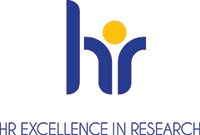 The Human Resources Strategy For Researchers (HRS4R)
The Human Resources Strategy For Researchers (HRS4R)
The European Commission adopted the European Researchers’ Charter and the Code of Conduct for Researcher Recruitment, drafting two documents aimed at researchers as well as employers and providers of public and private sector funding. Both documents have become key elements of European Union policy, making research an attractive career and stimulating economic growth and employment in Europe.
Specifically, the European Charter for Researchers outlines the functions, responsibilities and rights of investigators and their employers. The aim is to ensure that the relation between these parties contributes to successful performance in the generation, transfer and shared use of knowledge, as well as the professional development of researchers from the early stages.
Moreover, the Code of Conduct for Researcher Recruitment was drawn up to improve enrolment, so that selection procedures are fair and transparent. The researcher’s merit should be measured not only by the number of publications, but also by a wider range of evaluation criteria such as education and teaching, supervision, teamwork, knowledge transfer, management and public awareness-raising activities.
To help accommodate the research institutions to the Charter and Code principles, the Commission set out a procedure through which those institutions interested in including them, could design their own Human Resources (HR) Strategy.
We have followed up the next steps for preparing our Strategy of Human Resources for Researchers:
- Raise awareness of the principles of the Charter & Code.
- Internal gap analysis by the institution working group.
- Implementation of a survey to the different groups of researchers.
- Developing of the draft Action Plan.
- Contrast of the draft Action Plan with the Steering Committee.
- Application to the Commission for validation of the Human Resources Strategy for Researchers at NEIKER.
HRS4R In NEIKER
NEIKER signed its commitment to the 40 principles of the European Charter for Researchers and the Code of Conduct for the Recruitment of Researchers (C&C) in June 2019.
From the joint work carried out through an “ad hoc” group created to advance NEIKER’s human resources strategy and adapt it to the principles of the Charter and Code, the necessary documents were prepared to formalize the actions. Among them, the 2020 Action Plan for the next 5 years, which recognized the actions and tasks necessary to achieve the objectives set within the strategy. This plan was approved in April 2021 after incorporating a series of modifications proposed by the European Commission.
In 2023 NEIKER has successfully passed the Interim review. Specifically, the European Commission indicates that NEIKER is moving forward with appropriate and quality actions described in its Action Plan and that there is evidence that HRS4R is more integrated. The summary of the weaknesses and strengths detected and their evolution since the initial phase are included in the summary document. In this process, NEIKER has reviewed its initial action plan, incorporating new actions and modifying/reformulating some of the actions already proposed in the initial action plan.

Open, Transparent And Merit-Based Recruitment Of Researchers (OTM-R)
Open, transparent and merit-based recruitment (OTM-R) is one of the pillars of the European Charter for Researchers and in particular of the Code of Conduct for the Recruitment of Researchers. OTM-R brings benefits to researchers, institutions and a country’s research system. More specifically, OTM-R makes research careers more attractive, ensures equal opportunities for all candidates and facilitates mobility. Overall, it may contribute to an increase in the cost-effectiveness of investments in research.
We have analysed the situation with regard to the principles of OTM-R at NEIKER and has drawn up a set of actions to adequate its research hiring process to the OTM-R.





